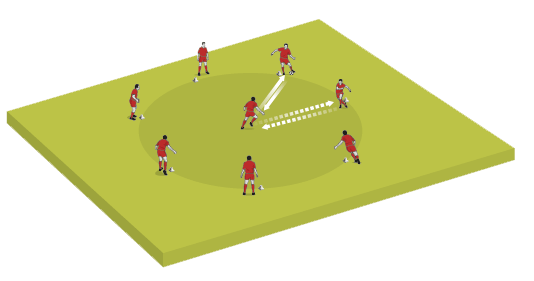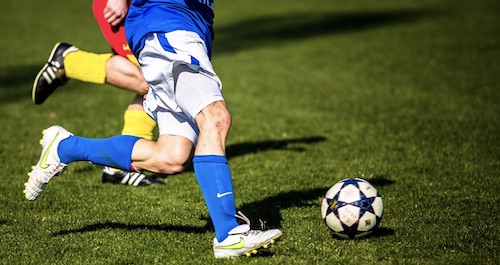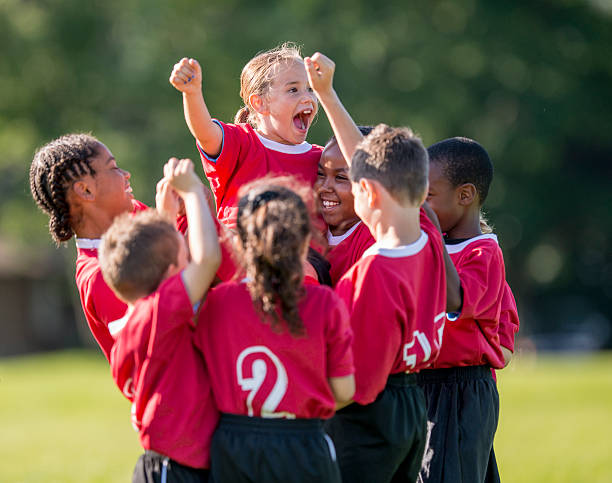
Team chemistry is more than just a buzzword; it’s the foundation that makes or breaks a team’s success. Whether you’re coaching a group football lesson, leading a soccer camp in Singapore, or managing private soccer training, fostering cooperation and trust within your team can take your players to the next level. Here’s a guide to some essential exercises and drills that build team chemistry and enhance player relationships.
1. Trust Fall Drills
Trust is crucial for effective teamwork. One of the simplest and most effective ways to build trust is through trust fall drills. Here’s how to do it:
- Pair Up: Pair players up and have them stand back-to-back, facing opposite directions.
- Falling Exercise: One player stands still while the other gently falls backward into their partner’s arms.
- Switch Roles: After the fall, switch roles and repeat.
This exercise helps players rely on each other and build confidence in their teammates. It’s an excellent warm-up for group football lessons or soccer training sessions where players may not know each other well.
2. Passing in a Circle
Passing drills are not just for improving ball skills; they’re perfect for improving communication and teamwork. Here’s how to do it:
- Form a Circle: Players form a circle, with one player starting in the middle.
- Pass and Call Out: The player in the middle passes the ball to a teammate and calls out their name.
- Switch Positions: The receiving player then becomes the one in the middle, continuing the drill.
This exercise emphasizes communication, awareness, and quick decision-making. It’s ideal for group soccer training and can be easily adapted for private football lessons to include more challenging variations like one-touch passing.
3. Two-Touch Game
A two-touch game builds teamwork and teaches players to think quickly. This exercise can be performed in both group soccer training sessions and football camps:
- Setup: Create a small playing area and divide players into two teams.
- Rule: Players are only allowed two touches on the ball before they must pass it to a teammate.
- Objective: Encourage players to communicate, move into space, and work together to maintain possession.
This drill emphasizes teamwork, spatial awareness, and the importance of supporting one another on the field. Players quickly learn the value of anticipating each other’s moves and making quick decisions, which strengthens team bonds.
4. Relay Races with a Twist
Relay races are fun and competitive, and adding a twist can enhance teamwork. This game can be adapted for soccer camps, football training, and private lessons:
- Form Teams: Divide players into small teams of 3-4.
- Set Up Obstacles: Create an obstacle course that each player must navigate, including dribbling the ball through cones and making a pass to the next teammate.
- Communicate: Players must pass the ball with accuracy and maintain a steady pace to ensure their team completes the course quickly.
- Change Roles: After completing the course, players rotate roles to build a sense of unity and equal participation.
Relay races not only improve fitness and technical skills but also help players develop a stronger sense of cooperation and shared goals.
5. Small-Sided Games
Small-sided games are one of the best ways to promote teamwork because they encourage players to work together in a more dynamic and challenging environment. Here’s how to use small-sided games effectively:
- Set Up the Game: Use half the field and play a 4v4 or 5v5 match with no goalkeepers.
- Focus on Passing: Emphasize passing and moving into space. Assign rules, like players must complete a set number of passes before attempting a goal.
- Rotate Teams: Frequently switch players to ensure everyone plays with and against each other.
Small-sided games simulate real-game scenarios and force players to rely on each other’s strengths. It’s an effective drill for group soccer training and can be made competitive with simple prizes or recognition for the winning team.
6. Team-Building Challenges
Team-building challenges outside the field can help strengthen relationships among players. Examples include:
- Problem-Solving Activities: Set up a challenge that requires players to work together to solve a problem or complete a task, such as building a structure out of limited materials.
- Group Discussions: Have players discuss their goals and what they need from each other to succeed as a team.
These activities help players build bonds and learn about each other’s strengths and weaknesses, fostering a culture of trust and mutual respect.
Why Team Chemistry Matters
Strong team chemistry is more than just about getting along; it’s about creating an environment where everyone supports each other, communicates effectively, and pushes the team to perform better. Whether through group football lessons, private soccer training, or soccer camps, these exercises help establish a foundation for trust and cooperation that leads to stronger performance on the field.
When players trust each other, they make fewer mistakes, anticipate each other’s moves, and play with greater confidence. In the long run, team chemistry can be the difference between just playing the game and winning it.
Final Thoughts
Building team chemistry takes time, effort, and consistent practice. Incorporate these exercises and drills into your training sessions to foster cooperation and trust. Whether you’re working with a local football academy in Singapore or leading a soccer camp, prioritizing team-building activities will create a supportive environment that players will thrive in. Start today, and watch your team grow stronger and more connected both on and off the field.








